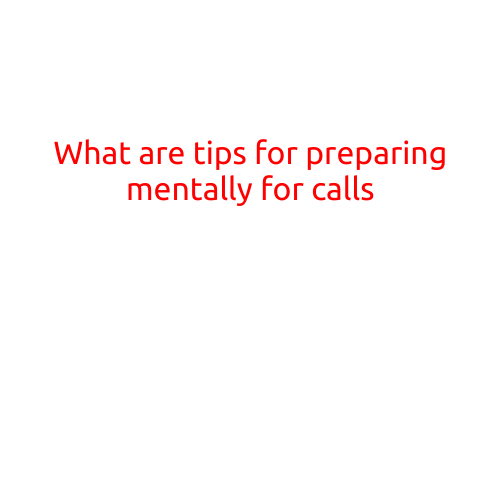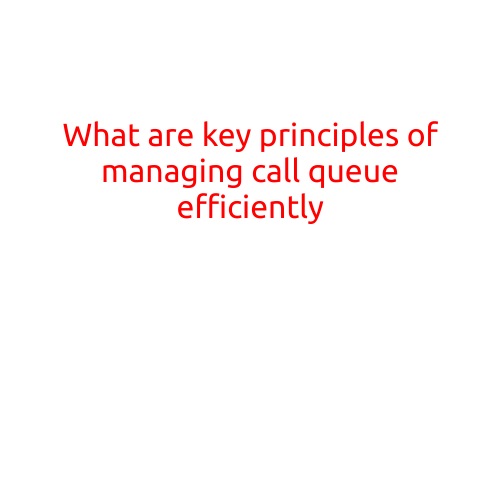
What are Tips for Preparing Mentally for Calls?
When it comes to making or receiving calls, whether for personal or professional reasons, mental preparation can go a long way in determining the outcome. A well-prepared mindset can help you feel more confident, focused, and effective in your interactions. In this article, we’ll share some valuable tips for preparing mentally for calls to help you achieve your goals.
Prepare in Advance
Before making or receiving a call, take a few minutes to gather your thoughts and focus on the task at hand. This might involve:
- Reviewing notes or documents related to the call
- Visualizing the conversation and anticipating potential questions or concerns
- Taking a few deep breaths to calm your nerves and reduce stress
- Setting aside any distractions, such as turning off notifications or finding a quiet space
Set Clear Goals
Having clear goals for the call can help you stay focused and motivated. Ask yourself:
- What do you hope to achieve from the call?
- What specific questions do you need to address?
- What steps do you want to take next?
Write down your goals and visualize yourself achieving them. This will help you stay on track and make the most of your time.
Manage Your Expectations
It’s essential to manage your expectations for the call. Avoid having unrealistic hopes or fears, and try to approach the conversation with an open mind. Remember that:
- You can’t control the outcome, but you can control how you respond
- The other person on the call may have their own agenda or concerns
- The goal is to have a productive and respectful conversation, not to “win” or “lose”
Stay Present-Minded
When engaging with the other person, focus on the present moment and avoid worrying about the past or future. Pay attention to:
- The other person’s words and tone
- Your own emotions and reactions
- The conversation’s flow and pace
Stay present, and avoid getting sidetracked by distractions or personal biases.
Practice Active Listening
Effective communication is key to a successful call. Practice active listening by:
- Giving the other person your full attention
- Paraphrasing and summarizing what you’ve heard
- Asking clarifying questions and seeking feedback
Stay Positive and Confident
Maintain a positive and confident attitude by:
- Focusing on the benefits or outcomes of the call
- Acknowledging and embracing your strengths and expertise
- Practicing positive self-talk and reframing negative thoughts
Follow Up and Follow Through
After the call, take a few minutes to:
- Review your notes and any decisions or actions agreed upon
- Send a follow-up email or message to confirm the conversation and next steps
- Take action on any tasks or commitments made during the call
By following these tips, you’ll be better equipped to prepare mentally for calls and achieve your goals. Remember to stay focused, adaptable, and positive, and you’ll be more likely to have successful and productive conversations.





